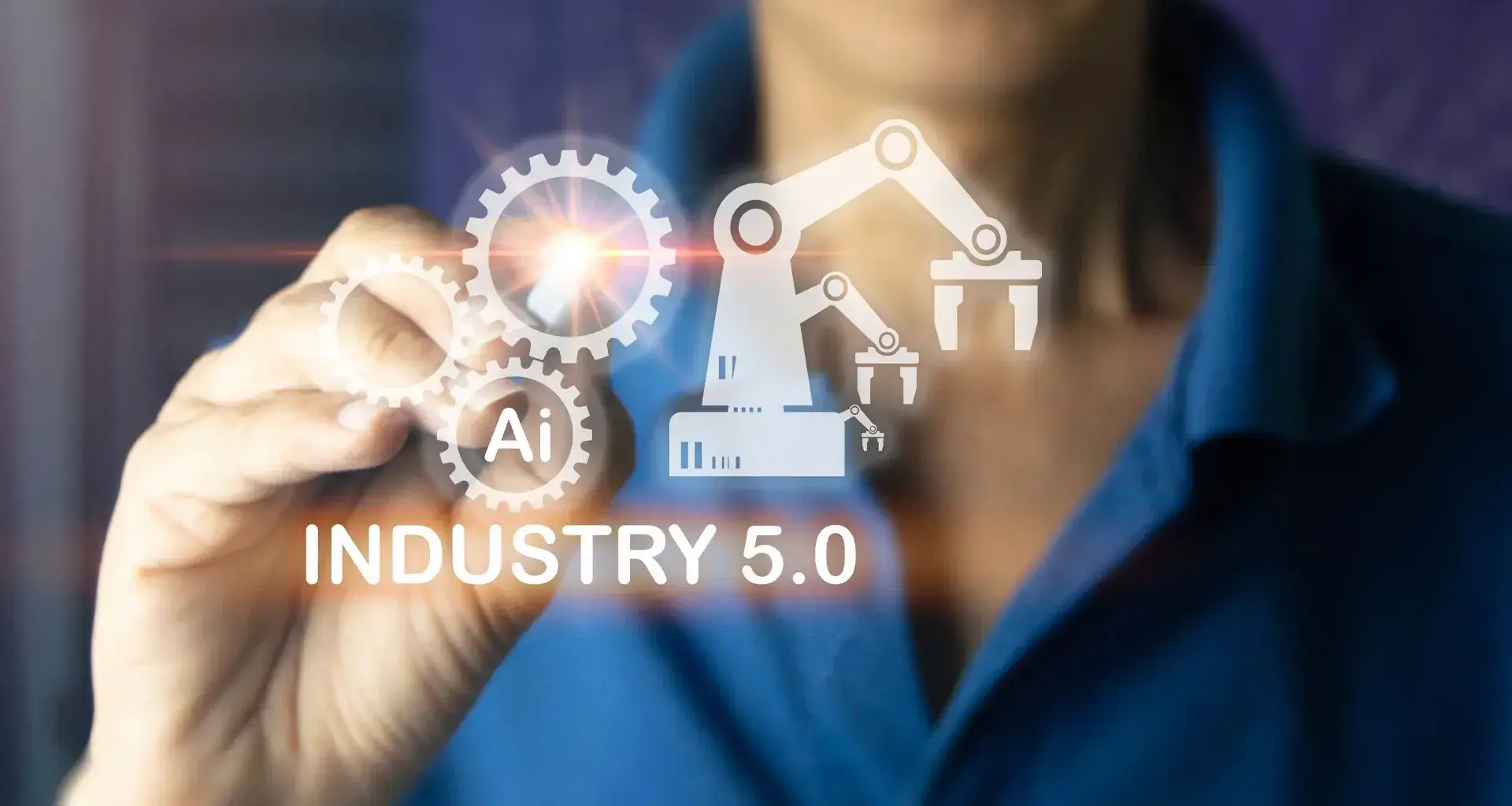With a device similar to a smart flowerpot, students of Electronics Engineering at Tec de Monterrey have developed a minimum viable product (MVP) with Industry 5.0 characteristics.
This is The Garden project, which integrates several technologies such as a hydroponic system for plant care, Wi-Fi connection, climate control, and gas detection.
Raúl Ambriz, Samuel Aboytes, Yuxian Li, Leyde Calderón, and Andrés Duarte from the Monterrey campus are in charge of the project and are members of the Institute of Electrical and Electronics Engineers (IEEE).
The MVP is a prototype of a new device used to validate an idea and seeks to satisfy user needs before being launched on the market.
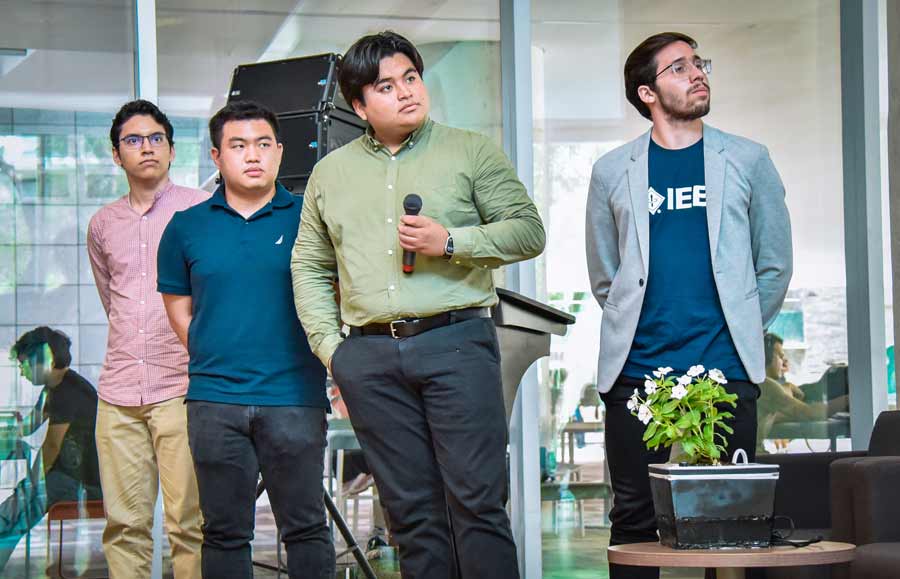
A project with a focus on Industry 5.0
The Garden project is a smart flowerpot equipped with technology such as sensors and artificial intelligence algorithms and offers different features that promote green spaces.
This prototype seeks to add to the concept of Industry 5.0, which is still under development, and is aimed at extending the synergy between humans and machines, Ambriz said.
“There are several definitions from visionaries, and we want to add one of the main needs of today: the environment.
“We see the fifth industrial revolution as a synergy between humans, nature, and technology,” the student and team leader said.
He added that the quality of human life and the environment could be improved through this symbiosis while taking advantage of new advances in technology.
For about a year, the students have worked on developing their idea and prototyping The Garden, which began as a research project, said Aboytes.
“We’re learning how to turn our research idea into a product that benefits not only the industry but also a much larger audience,” Samuel said.
Industry 4.0 is characterized by advanced automation, interconnection of devices and systems, the use of big data, artificial intelligence, and digital manufacturing.
In contrast, Industry 5.0 focuses on the safe collaboration between humans and robots, the customization of production, and the adaptability of manufacturing processes to changing market needs.
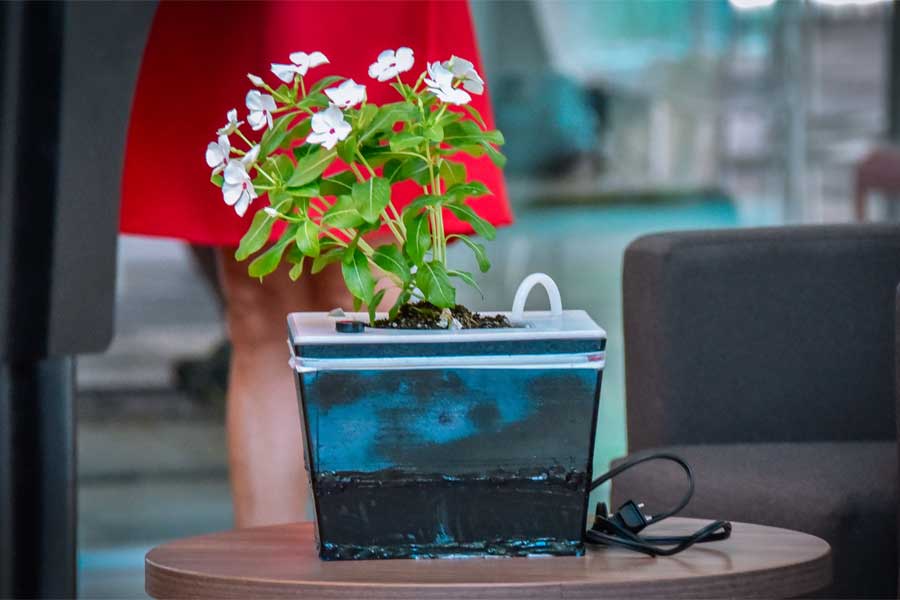
Features of The Garden
The Garden project was conceived as a model developed with the idea of taking care of people’s wellbeing and offering esthetics and energy with nature, Yuxian said.
“It seeks to take care of users’ mental health, while also increasing consumers’ productivity and happiness,” Li commented.
Its features include the following:
- Climate control and hydroponic system
One of the objectives of this project is to promote nature and green spaces through plants in real estate or industrial areas for decision making.
The prototype has a space to place a plant and make it self-sustainable through a hydroponic system based on physical variables.
It is possible to provide automatic control of a space’s humidity with an algorithm so that it is suitable for both people and plants.
- Air purification
The Garden is also equipped with a HEPA filter that serves to retain airborne particles to reduce the risk of viruses and prevent disease.
In addition, the students are looking to coat the device with a photolytic layer to absorb contaminants in the environment.
When the layer receives light, the particles that come into contact with it will degrade and become benign particles, thus purifying a space the same way as a tree would.
“We see the fifth industrial revolution as a synergy between humans, nature, and technology.” - Raúl Ambriz, student and leader of the team.
- Hazardous gas detection
The prototype also has the ability to detect noxious and flammable gases to help prevent fires.
The MVP was equipped so that it can sound an alarm and issue an alert to a mobile application upon detection of dangerous values of a gas.
- Wi-Fi repeater
The prototype is equipped with technology to function as a Wi-Fi repeater and extend signal range and network quality.
Aboytes said that the device is capable of increasing signal strength by 50% and includes security standards for network protection.
- Maximum connectivity
The Garden can be operated from anywhere and at any time through a control system that works with a mobile application.
From this application, users can change different values, turn the device modules on or off, or modify the environment’s humidity.
- Energy savings
The students developed an intelligent algorithm to reduce the energy required to operate it by up to 80%.
This device has an LED lighting system that also helps to reduce energy consumption.
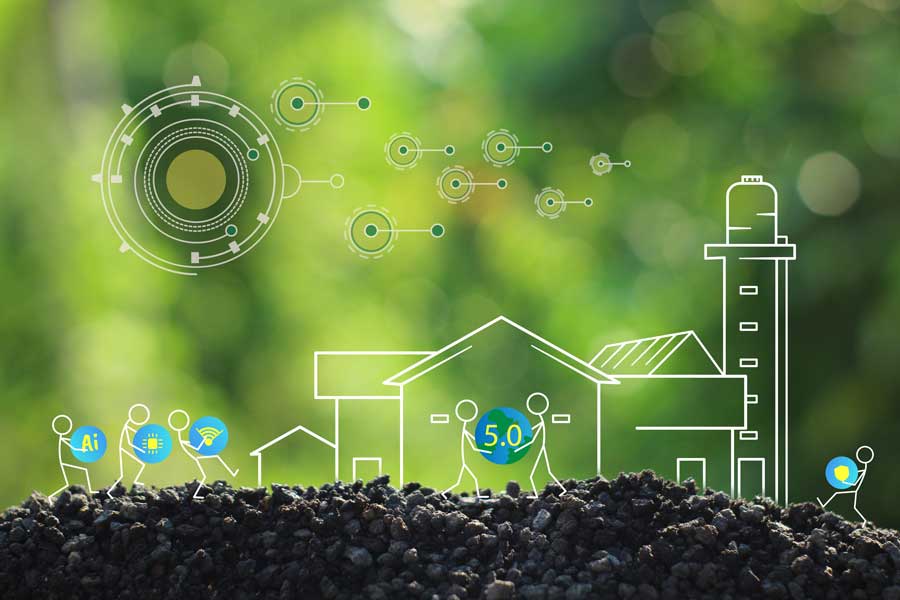
Technologies in the testing phase
Ambriz said they are looking to install a speaker and microphone in the prototype and a system capable of understanding natural language to give The Garden the functionality of a virtual assistant.
He also said that they are evaluating the performance of the sensors using algorithms and machine learning techniques to analyze the data generated and make predictions about the behavior of spaces.
What’s more, the student said that they are looking to use this device’s advanced sensors to transform it into a greenhouse at home, where users can grow any type of plant.
“The Garden’s vision is to provide technological neurons for spaces, which will exchange data to improve human and environmental wellbeing while implementing new technologies.”
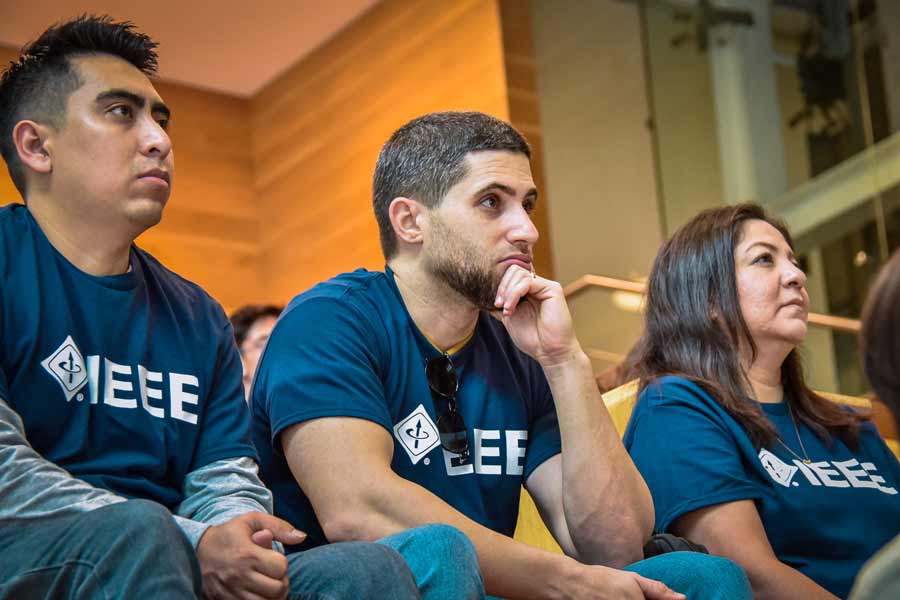
The Garden’s potential
The team that developed the MVP is made up of students who liaise between the IEEE in Mexico and Tec de Monterrey, Aboytes said.
In addition, for the development of the project, they were advised by Dr. César Vargas, a research professor from the Tec’s School of Engineering and Sciences who is also a member of the IEEE.
“We don’t deal with Industry 4.0 anymore at the research level. We’re already looking at Industry 5.0. That’s where the students get ideas from, which is why they can say it’s an Industry 5.0 product,” he said.
“The project has a future because although its technology is subject to obsolescence, it can easily be replaced and can continue to evolve as the years pass,” he added.
This professor emphasized that the students had developed their idea in a short time.
The students competed with The Garden project in the IEEE IoT & AI Challenge, where the challenge was to develop an MVP based on the Internet of Things and Artificial Intelligence to solve real problems.
The Internet of Things (IoT) is a concept that refers to the interconnection of everyday objects and devices to the internet.
After demonstrating the operation of the prototype at the local phase in Mexico, the students competed in the Latin American regional stage at the Robotifest 2023 event in Costa Rica.
ALSO READ:

